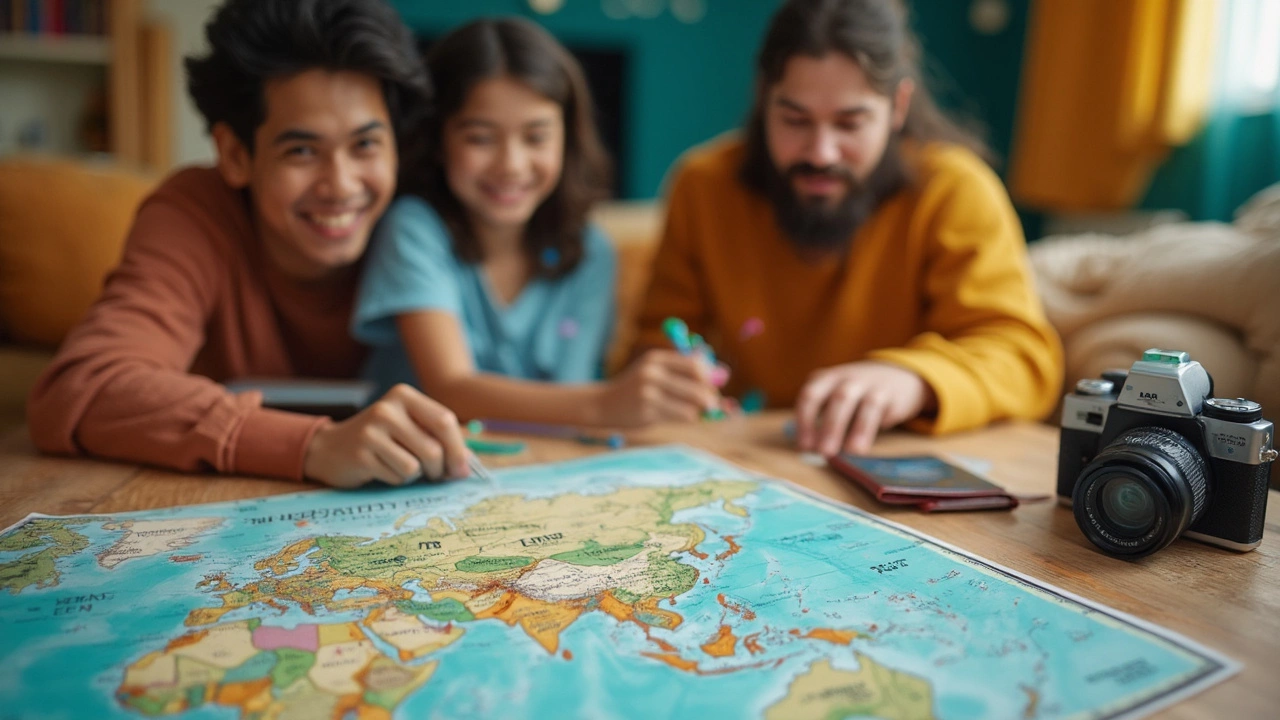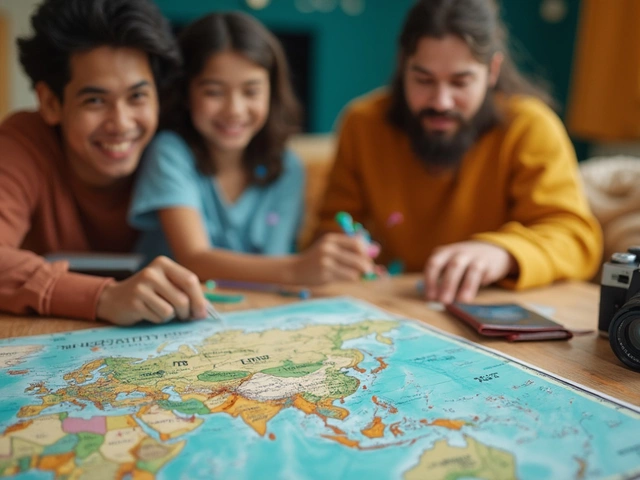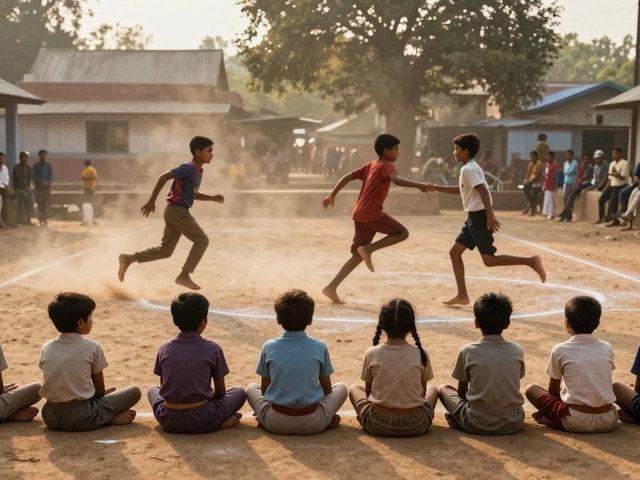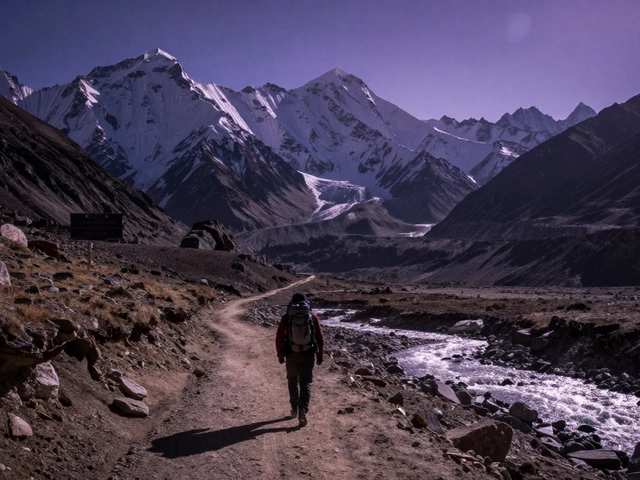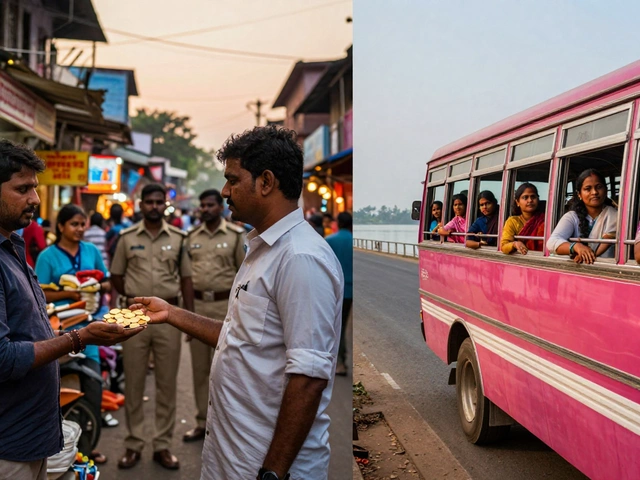Heading to India soon? If you're traveling from the U.S., you might be asking yourself: Do I need vaccines before I go? While no vaccines are required by law, several are strongly recommended to keep you safe and healthy along your journey.
First on the list is Hepatitis A, which you can catch through contaminated food or water. It's pretty easily transmitted, and taking this shot can spare you from unpleasant stomach troubles. Then there's Typhoid, another one you get from food and drink. It's worth considering if you're planning to explore more rural areas or indulge in local street food—which is half the fun of visiting India, right?
Don't forget about Hepatitis B if you're planning a longer stay. And while it’s less common, you might want to consider the rabies vaccine, especially if you’ll be spending time outdoors in remote areas.
But wait—how about protecting your wallet while protecting your health? These vaccines can get pricey, so it's smart to check with your health insurance to see what they cover. Planning ahead can save you from unexpected expenses, letting you enjoy your trip without stress.
Recommended Vaccines
When planning your trip to India, understanding the recommended vaccines is crucial in ensuring a safe and healthy journey. While not mandatory, these shots are advised to protect against common infections in the region.
Hepatitis A
Hepatitis A tops the list for travelers due to its easy spread through contaminated water and food, which can be common in various parts of India. A single dose, ideally taken two weeks before travel, can give you sufficient coverage for your trip.
Hepatitis B
Particularly recommended for those with a longer stay or those participating in activities that might bring them into contact with bodily fluids, such as volunteering in healthcare settings. It's a series of shots, so plan ahead.
Typhoid
Considering India's famous street food culture, a Typhoid vaccine is a wise choice. You could opt for an injectable vaccine or an oral one, both providing ample protection against this food and waterborne disease.
Other Vaccines
American travelers might also consider vaccinations for rabies and Japanese Encephalitis, especially if you’re venturing into more rural or wildlife-rich areas. These aren’t as common, but they are recommended based on your specific travel itinerary.
Vaccine Timing and Costs
Start planning your vaccinations at least a month before your departure. This gives you plenty of time for any series of shots and ensures the vaccines take effect properly. Remember, these might be out-of-pocket expenses depending on your healthcare plan, so factor them into your budget.
| Vaccine | Recommended For | Protection Duration |
|---|---|---|
| Hepatitis A | All Travelers | Lifetime (after all doses) |
| Hepatitis B | Long-stay Travelers | Lifetime (after all doses) |
| Typhoid | Food Adventurers | 2-3 Years |
Overall, weighing the costs versus the benefits of these vaccines is key to a worry-free adventure in India. Keep these recommendations in mind, and you'll be well-prepared to explore all that India has to offer while keeping your health in check.
Essentials to Pack
Getting ready for your trip to India? Packing can feel like a puzzle, but I've got you covered with a few must-have items. India's diverse climate and culture mean you'll need a bit of everything to stay comfortable and prepared. Let's dive into the nitty-gritty of what you should tuck into your suitcase.
Clothing Tips
India's climate varies from region to region, so think layers! Lightweight and breathable clothes are your best friends. Women might want to pack a scarf or shawl for visiting religious sites where modesty is key. And remember, a good pair of walking shoes is essential for exploring those bustling streets.
Travel Health Kit
Besides the recommended vaccines for India travel, it’s wise to pack a basic health kit. Include items like pain relievers, antihistamines, and any prescription meds. Don’t skip on hand sanitizer and mosquito repellent—especially for rural or tropical visits.
Pro Tip:
Consider carrying a water purification method. A filtration bottle or purification tablets can be a lifesaver if you’re unsure about water quality.
Tech and Gadgets
Staying connected is easier with a universal adapter. Plus, an extra portable charger will keep your devices juiced up for capturing those stunning Taj Mahal selfies. A local SIM card is useful for affordable data plans, so throw in an unlocked phone if you have one.
Important Documents
- Passport and travel visa (double-check the validity!)
- Copies of travel insurance documents
- Vaccination card
- Hotel reservations and itinerary
It pays to have digital backups of all these documents on your phone or cloud storage too.
Handy Extras
A reusable tote bag can be handy for shopping adventures or impromptu picnics. And if you're a fan of street food, a small packet of wet wipes can be more useful than you'd think!
Packing these essentials not only sets you up for a smoother trip but also helps you feel confident and prepared as you travel across India. Stick to this list, and you'll be well on your way to an unforgettable adventure!

Budgeting for Health
Trying to manage costs when planning for vaccines can feel like a bit of a puzzle. But don’t worry, we’ve got some tips to help keep your wallet happy while ensuring you're well-prepared for your adventure to India.
Check Your Insurance
Start by reaching out to your health insurance provider to see what vaccines for India travel are covered. Many plans cover common vaccines like Hepatitis A and B, but it varies. Understanding what’s covered can save you from shelling out extra cash.
Visit a Travel Clinic
Travel clinics specialize in advising globetrotters like you. While they charge for services, it might be worth it if you're unsure about what you need. Plus, some clinics might offer bundled deals on vaccines, which can trim down costs compared to treating each vaccine separately.
Compare Pharmacy Prices
Did you know that the cost of vaccines can vary depending on where you go? Head to your local pharmacy or call around to different ones to see who offers the best prices. It’s amazing how much you can save this way!
Keep an Eye on Discounts
Sometimes you can snag discounts or find special deals on vaccines. Keep an eye on your pharmacy’s promos or check if your workplace offers any wellness incentives.
Plan Vaccines in Stages
If you have enough time before you travel, think about getting vaccines done in stages. This way, you spread out the cost instead of paying all at once. Just make sure to consult a healthcare provider about timing!
By budgeting for these vaccines effectively, you’re not only keeping your trip to India on track but also ensuring you stay healthy enough to enjoy every moment. After all, there's no price tag on peace of mind!
Health and Safety Tips
Travelling to a bustling place like India can be quite the adventure! But before you immerse yourself in the vibrant culture and delicious cuisine, keeping a few health and safety tips in mind can make all the difference.
Stay Hydrated, Stay Healthy
India’s climate can be sweltering, especially in the summer months. You’ll want to drink plenty of water, but tread carefully. Tap water is a no-go for tourists. Always opt for bottled or filtered water, and make sure the seal on the bottle is intact before you purchase it.
Smart Food Choices
Street food is a big part of the local experience, but it’s best to approach it cautiously. To keep your tummy happy, aim for stalls where the food is cooked fresh and served hot. Yes, it might mean a brief wait, but your body will thank you later! Stomach illnesses can quickly ruin your India travel budget with unwanted medical expenses.
Keep Mosquitoes at Bay
Mosquito-borne diseases are something to watch out for. Malaria isn’t prevalent everywhere in India, but dengue fever is another concern. Pack a good insect repellent and consider wearing long sleeves and pants at dusk and dawn when these pesky insects are most active.
Insurance and Medical Prep
It’s smart to have travel insurance covering illness and accident before stepping on the plane. Medical care in India can be top-notch, but having insurance ensures you get the best treatment without sweating the cost. Do a quick check-up with your doctor before you leave and make sure all your vaccines for India travel are up to date.
Stay Connected
A local SIM card is inexpensive and makes staying connected a breeze. Whether you're using it to navigate through cities or access emergency services, having a local number can be a lifesaver. Plus, it’s helpful for connecting with fellow travelers or sharing your trip highlights with loved ones back home.
Following these simple yet crucial tips will help ensure that your Indian adventure is memorable for all the right reasons. Safety doesn’t have to be complicated, and by taking these steps, you’re setting the stage for a trip filled with amazing experiences and peace of mind.
